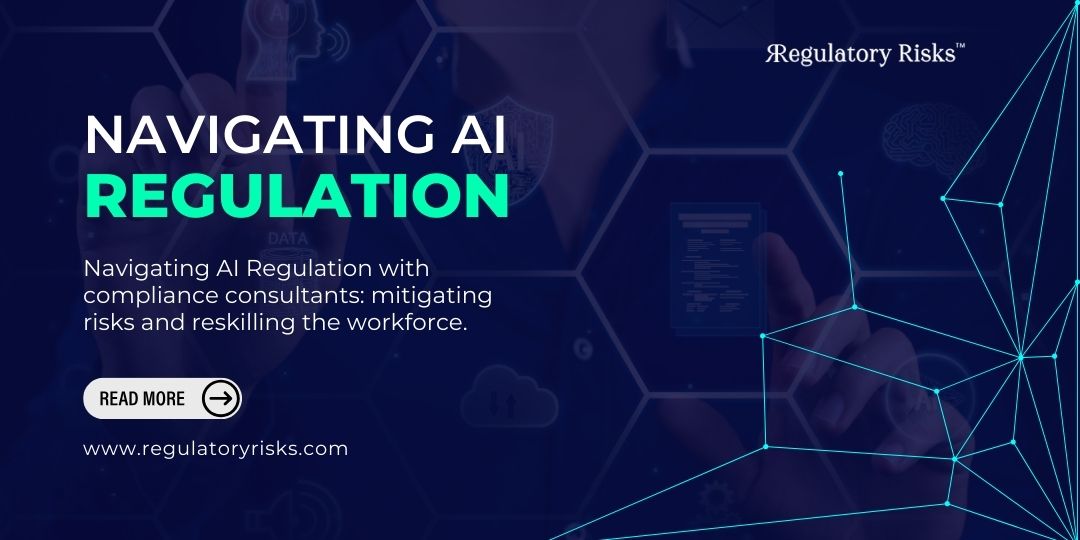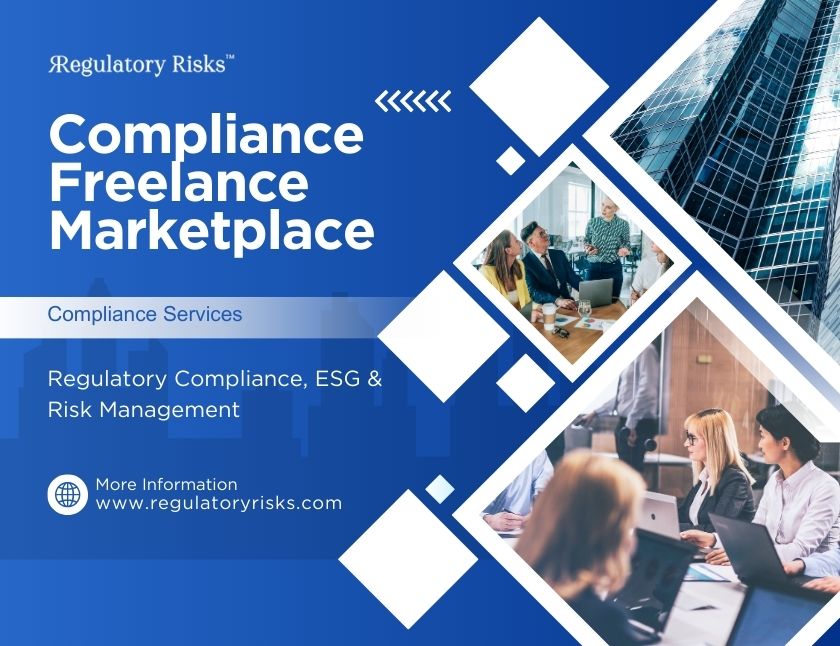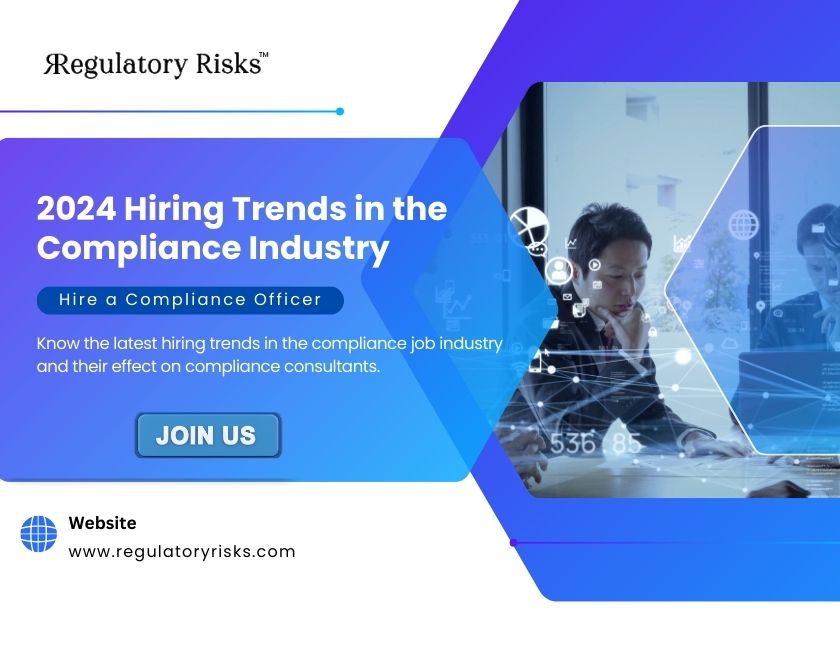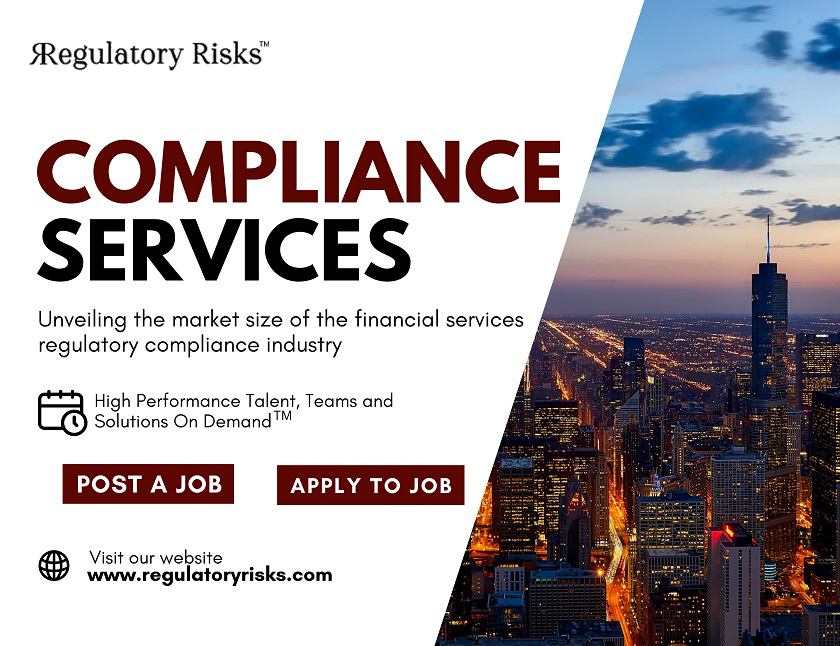The rapid advancement of artificial intelligence (AI) is transforming industries across the globe. Therefore, offering unprecedented opportunities for innovation and efficiency. However, this technological revolution also brings significant risks and challenges that necessitate robust regulatory frameworks. Additionally, as governments and regulatory bodies worldwide grapple with AI's implications, the role of compliance consultants becomes increasingly crucial. Therefore, this article explores potential AI regulations, their impact on the workforce, and the importance of reskilling displaced employees. Additionally, it highlights the benefits when firms hire compliance consultants from freelance marketplaces like Regulatory Risks.
The Growing Need for AI Regulation
Artificial intelligence has the potential to revolutionize various sectors, including healthcare, finance, transportation, and manufacturing. However, the deployment of AI systems also raises concerns about data privacy, security, bias, and the displacement of jobs. Further, in response to these challenges, countries are considering new regulations and legislation to control and mitigate the risks posed by AI.
Key Areas of AI Regulation
Data Privacy and Security:
AI systems often rely on vast amounts of data. Therefore, raising concerns about how this data is collected, stored, and used. Moreover, regulations will likely focus on ensuring that AI systems comply with data protection laws, such as the General Data Protection Regulation (GDPR) in the European Union. Additionally, it will establish stringent cybersecurity measures to protect sensitive information.
Bias and Fairness:
AI algorithms can inadvertently perpetuate or even exacerbate biases present in the training data. Hence, regulatory frameworks may require companies to demonstrate that their AI systems are fair, transparent, and free from discriminatory practices. Therefore, this could involve regular audits and assessments to identify and mitigate biases.
Accountability and Transparency:
As AI systems make more autonomous decisions, it becomes essential to establish clear accountability and transparency. Further, regulations may mandate that companies provide detailed explanations of how their AI systems work. Additionally, it also ensures that there is a human oversight mechanism in place to intervene when necessary.
Job Displacement and Workforce Reskilling:
The integration of AI technologies can lead to job displacement in various industries. Therefore, to address this, regulations could require companies to invest in reskilling and upskilling programs for displaced employees. Further, ensuring they are re-employed in new roles for a period of no less than two years.
The Role of Compliance Consultants in AI Regulation
A Chief compliance officer plays a pivotal role in helping companies navigate the complex regulatory landscape associated with AI. Therefore, these experts bring specialized knowledge and experience, assisting businesses in understanding and adhering to new regulations. Moreover, here are some key benefits of when firms hire compliance consultants:
Expertise in Regulatory Frameworks
Compliance consultants are well-versed in the latest regulatory developments. Additionally, they can provide valuable insights into how these changes impact your business. Moreover, they can help you interpret and implement new regulations. Thus, ensuring that your AI systems are compliant with legal requirements.
Developing Robust Compliance Programs
A chief compliance officer can assist in developing and implementing comprehensive compliance programs tailored to your specific needs. Additionally, this includes creating policies and procedures for data privacy, bias mitigation, accountability, and transparency. Moreover, by having a robust compliance program in place, you can minimize the risk of regulatory breaches and associated penalties.
Conducting Audits and Assessments
Regular audits and assessments are essential to ensure ongoing compliance with AI regulations. Moreover, compliance consultants can conduct thorough evaluations of your AI systems, identify potential areas of non-compliance, and recommend corrective actions. Therefore, this proactive approach helps maintain compliance and build trust with regulators and customers.
Training and Education
Compliance consultants can provide training and education to your staff. Thus, ensuring they understand the regulatory requirements and their roles in maintaining compliance. Moreover, this helps create a culture of compliance within your organization and empowers employees to identify and address potential issues.
Reskilling the Workforce: A Regulatory Imperative
One of the most significant concerns associated with AI is the displacement of jobs. Moreover, as AI systems become more capable, there is a risk that certain roles will become redundant. Furthermore, to address this challenge, proposed regulations could mandate that companies invest in reskilling and upskilling programs for displaced employees. Therefore, including the requirement to provide alternative employment for impacted individuals for a period of 2+ years.
The Case for Reskilling
Reskilling involves training employees to acquire new skills that are relevant to emerging roles within the organization. This helps mitigate the impact of job displacement. Additionally, it ensures that businesses have access to a skilled workforce capable of driving innovation and growth.
Benefits of Reskilling Programs
Employee Retention and Morale:
Investing in reskilling programs demonstrates a commitment to your employees' career development and well-being. Therefore, this can boost morale, enhance job satisfaction, and reduce turnover rates.
Continuity and Adaptability:
Reskilled employees bring valuable institutional knowledge and experience to their new roles. Therefore, this continuity is essential for maintaining operational efficiency and adaptability in a rapidly changing technological landscape.
Enhanced Competitiveness:
A workforce with new skills and knowledge can drive innovation and improve your company's competitive edge. Additionally, reskilling programs enable employees to contribute to new initiatives and adapt to evolving market demands.
Leveraging Freelance Marketplaces for Compliance Expertise
Hire compliance consultants from freelance marketplaces like Regulatory Risks offers several advantages for businesses seeking to navigate the complexities of AI regulation and workforce reskilling.
Access to a Diverse Pool of Experts
Freelance marketplaces connect businesses with a wide range of compliance consultants. Therefore, offering expertise in various areas such as data privacy, bias mitigation, and regulatory compliance. Additionally, this allows you to find the right consultant with the specific skills and experience needed for your project.
Flexibility and Cost-Effectiveness
Freelance consultants offer flexible engagement models. Therefore, allowing you to hire a compliance officer on a project basis, part-time, or full-time, depending on your needs. Further, this flexibility helps manage costs effectively. Additionally, it ensures you get the expertise you need without the financial commitment of a full-time employee.
Verified and Vetted Professionals
Platforms like Regulatory Risks vet their consultants to ensure they have the necessary qualifications and experience. This gives you confidence in the quality and reliability while you hire a compliance officer. Thus, reducing the risk of working with unqualified individuals.
Streamlined Hiring Process
Freelance marketplaces simplify the hiring process for a chief compliance officer by allowing you to post your requirements, review consultant profiles, and make hiring decisions quickly. Further, this saves time and effort, enabling you to focus on implementing compliance programs and reskilling initiatives.
The rapid growth of artificial intelligence presents both opportunities and challenges for businesses across various industries. Moreover, as countries introduce new regulations to control and mitigate the risks posed by AI, the role of compliance consultants becomes increasingly important. Additionally, these experts help companies understand and adhere to regulatory requirements, develop robust compliance programs, and ensure ongoing compliance through regular audits and assessments.
Also, addressing the potential job displacement caused by AI is crucial. Proposed regulations could require companies to invest in reskilling programs. Thus, ensuring displaced employees are re-employed in new roles for no less than two years. This approach not only supports the workforce but also enhances business competitiveness and innovation.
Leveraging freelance marketplaces like Regulatory Risks to hire compliance consultants offers numerous benefits. Therefore, including access to a diverse pool of experts, flexible engagement models, and a streamlined hiring process for the chief compliance officer. Thus, by partnering with the right consultants, businesses can navigate the complex regulatory landscape. Moreover, they can implement effective reskilling programs, and ensure long-term success in the age of AI.




